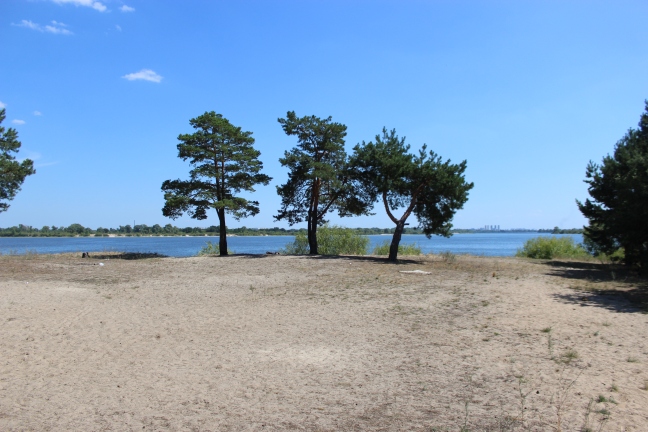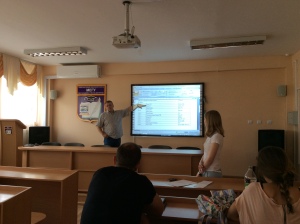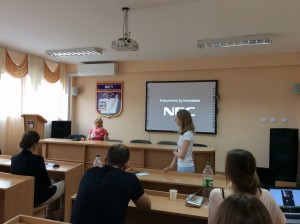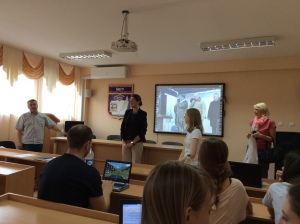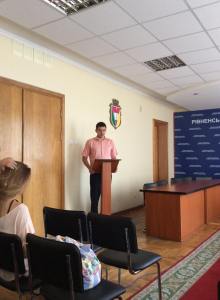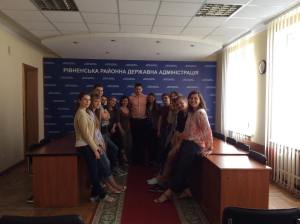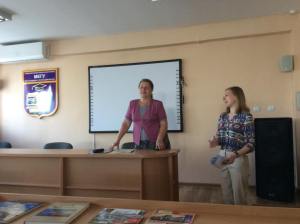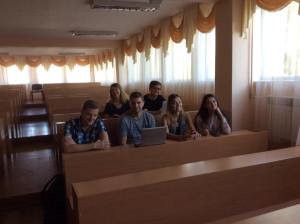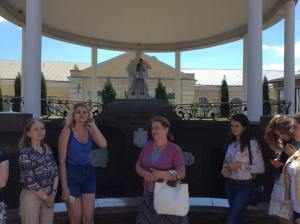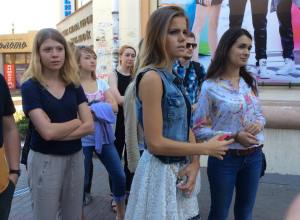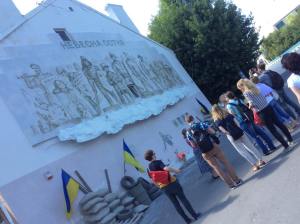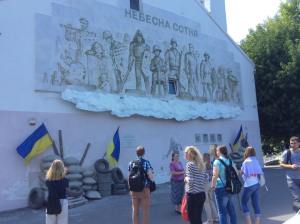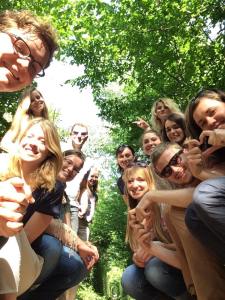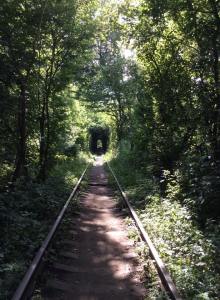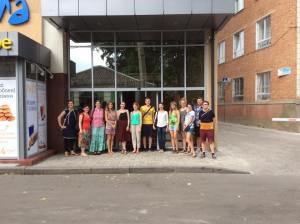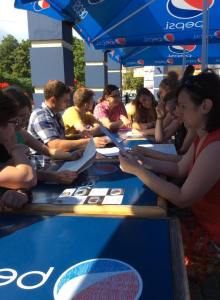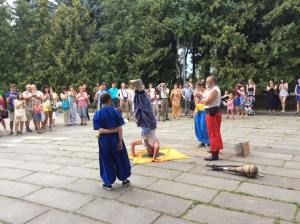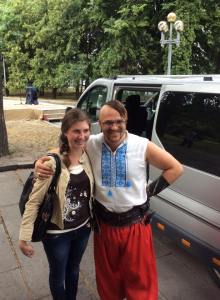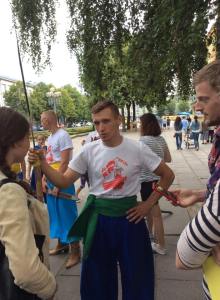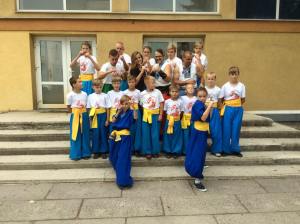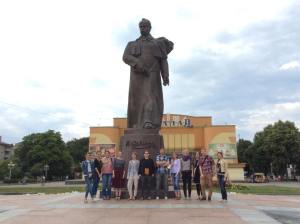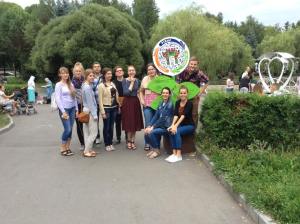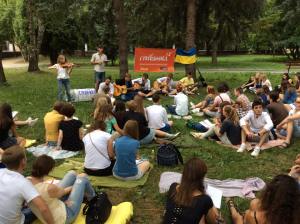On our third day we had a very tough program – in the beginning two lectures with Viktoria Servetnyk, journalist and press secretary from the Maidan in Rivne. She told us that on November 21st the rebellion in Rivne began, the rebellion “that changed our history and our spirit”. In the beginning just a few people stood at the Maidan in Rivne, having balloons with the picture of President Yanukovych and the words “Go away!” In Rivne, as well as in Kiev there were some tents built and guards established. The people of Rivne supported their Maidan with smaller or bigger actions (made sandwiches, donated clothes etc.) and students were striking. The Maidan in Rivne started with 100 people and increased to 3000 people. Every evening the events from Kyiv were broadcasted to be up to date and every hour people would sing the Ukrainian hymn together to show their unity and their protest.
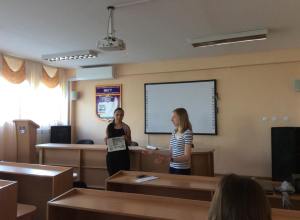
Viktoria Servetnyk published a new newspaper called “Vartovi Maidanu” (guards of the Maidan). The reason for establishing a new newspaper was the unbelievable amount of information. For people it was often very hard to find trustworthy information and Viktoria wanted to give them those news.
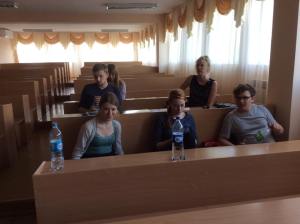
A very interesting fact was that people were earlier afraid to show the national colours. After the beginning of the Maidan many wanted to make sure: This is my country and my flag and I won’t let anyone take it away!
The participants of the summer school were interested in the Maidan actions in Rivne and asked questions about the age of the protesters and if there was an Anti-maidan (no there was none).
The second lecture was more about the Right Sector. Viktoria told us more about that organisation that was founded during the Maidan.
After so much information we were glad to have a nice lunch in a Ukrainian restaurant called “YOLANDA”. The hand made interior, the Ukrainian music and the food itself especially fascinated the German participants. Of course we had to take a picture of Taras Shevchenko (hero of all heroes…)!
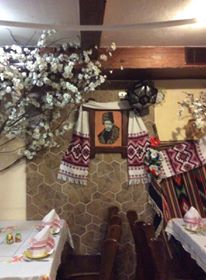
The second part of the day was a conversation with Maidan activists.
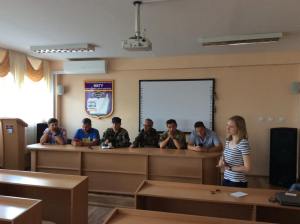
Anriy Tokarsky, Zurab Kantaria, three participants of the “Rivne Fight Hundred” and Yaroslav Hranitnyi
Anriy Tokarsky, member of the NGO “OPORA”, told us about his work. The aim of OPORA is to monitor elections in politics but also in on the organisations (and even the university president elections). The organisation began in 2004 after the Orange Revolution and has been monitoring elections since 2007. Yet they can just cover 5 % of the territory of Ukraine.
Zurab Kantaria, member of the political party POWER TO THE PEOPLE (SYLA LYUDEI), told us about the party and provoked a discussion by saying that one of the parties aims would be to allow all Ukrainians to have weapons. The group discussed that issue and Kantaria’s arguments (the army can not protect the people so they have to protect themselves, but under the control of the government). The aim of the party is also to build a new middle class and it was discussed what “middle class” actually means.
Three participants of the “Rivne Fight Hundred” told us something about their activities during the Maidan. They were in Kiev at the Maidan and came back after three participants from Rivne died. They returned to organise the funerals and visit their families, something which they do till this day. Also they organise some events to raise money for the ATO in the East. Their main task though is to protect the region, to go on patrols and to do work that actually should be done by the police.
The last participant of our discussion was Yaroslav Hranitnyi, former member of the “Right Sector” and now member of the “UNAMSO”. He told us about the history of the Right Sector, when and how it was found and what are the current tasks of the Right Sector. He explained why the Right Sector and he are against Eurointegration (because the Ukrainian economy is not ready for it) and said, that Ukraine can just help itself.
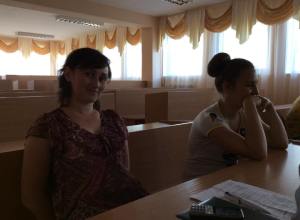
The last question was about the future of Ukraine. All three had the common opinion that Ukraine is accustomed to rising up from ruins. “We have to find our place under the sun”, said one. And one even quoted Shevchenko: “And there will be a son, there will be a mother, there will be people on the earth.” We all hope that Ukraine will find that place very soon!!!
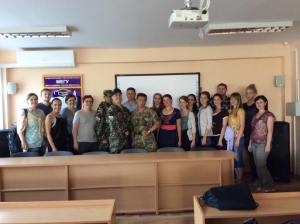
written by Anja Lange


